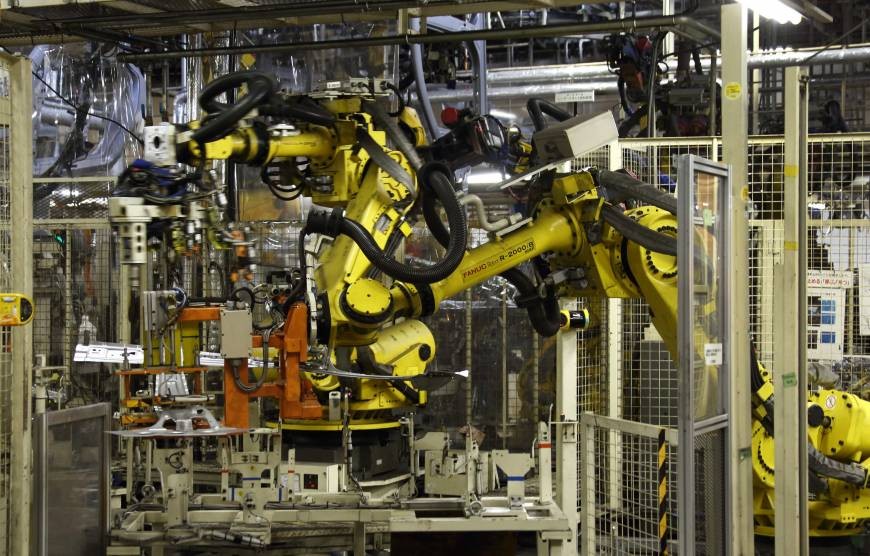Could Your Company Be A Target For Activist Investors
Post on: 16 Март, 2015 No Comment

An individual or group that attempts to agitate for change, or exert their influence over a company and its board, is referred to as an activist investor. Far from the World Trade Organization (WTO) protestors, activist investors are often hedge funds or private-equity firms. They can also be wealthy individuals or other entities.
Mismanagement, fixable problems, the ability to cut costs and restless shareholders are some characteristics that lure activist investors. A public company that would be dramatically less expensive to run privately could also become a target. This article will outline each of these characteristics and explain how each attracts the attention of activist investors. (To learn more about investors concerned with putting their money only into enterprises that support their values, read Extreme Socially Responsible Investing .)
Mismanagement
Activist investors like to keep an eye peeled for companies they think are mismanaged. The theory is that if the investors can obtain board seats, they have a chance to change the direction of the company, make the enterprise more profitable and perhaps boost its share price, earning themselves a tidy profit in the process.
One example of an activist seizing on what they perceived as a mismanaged company is the case of legendary billionaire investor Carl Icahn. Icahn has a reputation for acquiring large blocks of a particular company’s stock and then agitating for change. He often seeks the support of other shareholders and/or attempts to garner board seats. He is perhaps best known for his efforts to try to get RJR Nabisco to spin off its food segment from its tobacco segment in 2000.
More recently, in mid-2008, Icahn began scooping up shares of Internet stalwart Yahoo! (NYSE:YHOO ). While there were likely several reasons for Icahn’s interest, he was fairly adamant in his belief that existing management botched its handling of negotiations with Microsoft (NYSE:MSFT ) regarding the potential combination of the two companies. In addition to purchasing shares, Icahn also announced his own slate of directors that he would have liked to see nominated to Yahoo!’s board. (To read more about this activist investor, see Can You Invest Like Carl Icahn? )
Fixable Problems
Ideally, activist investors would come into a situation where they could simply kick back and make money. Trouble is, those situations are very hard to come by. Still, activists tend to keep an eye out for companies with minor problems that can be easily solved. The logic is that if they can help management correct those problems, or garner board seats and correct the issues themselves, they might make the company more profitable and/or a more attractive buyout target. That, in turn, can increase the value of their holdings in the company. (Learn what those in the know look for when acquiring a company in How The Big Boys Buy .)
Another characteristic of a company with the potential to attract activists is having an asset that is being overlooked or undervalued by Wall Street. In this situation, activists attempt to profit by getting the undervalued asset sold or spun off and set free. A spinoff or asset sale might also be attractive because it would let the original company concentrate on its core business. (To read more on this topic, check out Use Breakup Value To Find Undervalued Companies .)
For example, consider the case of Nelson Peltz, another billionaire investor, and the Tim Hortons (NYSE:THI ) doughnut-chain spinoff. In 2005, Peltz pushed well-known burger chain Wendy’s (NYSE:WEN ) to spin off its increasingly popular doughnut chain. His logic was that the move would allow Wendy’s to focus on what it has historically done best: selling tasty hamburgers. It’s unclear how Peltz fared personally because of his involvement; however, a stock-price chart reveals that Wendy’s shares did well in 2005 and for at least part of 2006. (For related reading, see Why Do Companies Care About Their Stock Prices? )
Ability to Cut Costs
A company’s cost structure can severely crimp its bottom line. However, if an activist investor has a way to trim costs or convince management to trim costs, they may be able to save the company tons of money and by extension boost the value of their holdings.
Peltz has often been a proponent of cost cutting. In the past he’s pushed for big cost-cutting measures as a means of enhancing shareholder value at high-profile companies, including Heinz (NYSE:HNZ ), Wendy’s and Cadbury. His motives are to get management to spend shareholder money wisely and to boost the share price.
Meanwhile, Icahn made headlines questioning Time Warner’s cost structure. He also aggressively attacked pay and severance packages at Blockbuster (NYSE:BBI ) and Yahoo!
- With regard to Blockbuster, he criticized then-chief executive John Antioco’s multimillion-dollar pay package given the stock’s lack of performance. (For more on this topic, see Reining In CEO Rewards .)
- With regard to Yahoo. Icahn attacked a severance plan the company reportedly put in place that some critics said was designed to thwart a takeover by Microsoft. (To learn how investors seek out little companies with big prospects, read Trademarks Of A Takeover Target .)

Restless Shareholders
A company’s shareholder base may be extremely restless in one of the following situations:
- The company’s stock price has fallen off dramatically, particularly over a short period of time.
- The company has recently missed out on a major opportunity, such as an acquisition .
- It has lost market share, or has experienced some other catastrophic event.
When this happens, it can present a terrific opportunity for activist investors to come along and pick up shares on the cheap, possibly making a bid for board seats as well. Restless shareholders are often willing to join or follow activist firms because they want an out. They want to see their position increase in value, and they see activist investors as potential saviors. (Read more about the importance of the shareholder’s voice in How Your Vote Can Change Corporate Policy .)
Cost Benefits of Privatization
Running a public company costs lots of money. There are accounting fees, the investor-relations budget, all those analyst meetings and, of course, the costs that accompany Sarbanes-Oxley compliance, such as enhanced financial disclosures. However, if the company can be made private, it may be able to reduce its expenses, which in turn could mean bigger profits for the owners.
This cost benefit has enticed acquirers in many private equity transactions. Some notable transactions where the company went private include:
- Apollo Management’s purchase of Linens ‘n Things,
- Texas Pacific Group’s purchase of PETCO Animal Supplies,
- Bain Capital and KKR’s purchase of Toys R Us. (To read about privatization on a much larger scale, check out State-Run Economies: From Public To Private .)
Bottom Line
There are many things that can attract an activist hedge fund, private-equity firm or other investor to a particular company. However, the following characteristics are the most influential in attracting these players.
- The potential for a spin-off or asset sale
- Cost cutting,
- Replacement of inept management.
- A restless shareholder base.
- A company that has fixable problems.
- Or any combination of these conditions .














